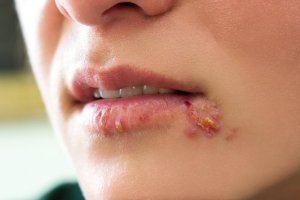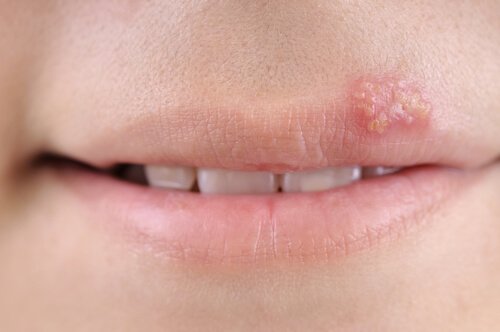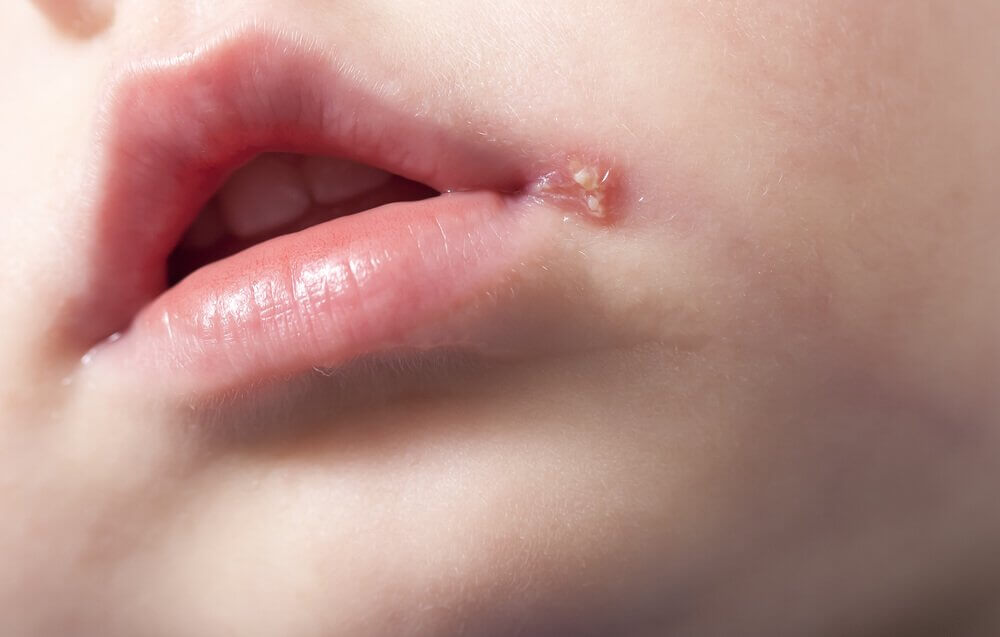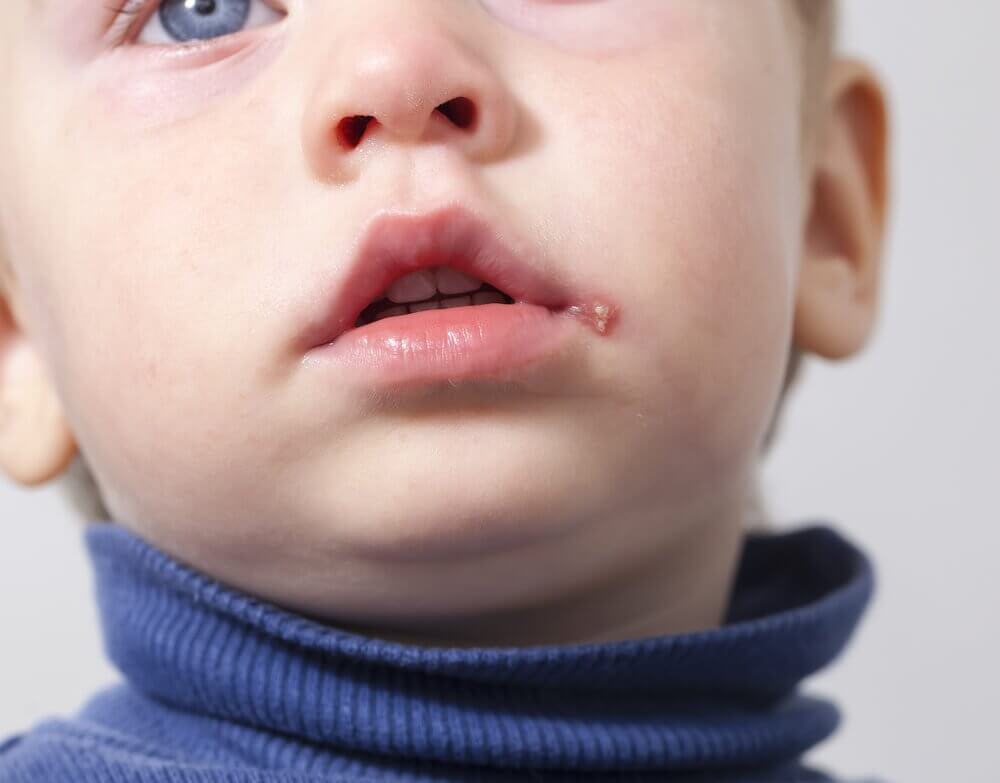How to Treat Herpes in Children


Written and verified by the doctor Mario Benedetti Arzuza
Herpes in children is caused by the herpes virus.
A few decades ago, it wasn’t very common in children. However, in recent years, it has gained ground. This could be due to certain risk factors that children are exposed to these days.
For now, herpes has no cure, but you can treat the symptoms. It’s also important to mention that the virus lies dormant throughout the person’s life, until it’s activated by some trigger.
What are the Types of Herpes Virus?

There are different types of herpes virus. It depends on what impact they have on the individual and which people they affect. Symptoms and the areas where they’re found can vary.
Below, we’ve detailed what they are.
Herpes Simplex Virus 1 (HSV-1)
This virus is the one that most commonly affects children. It causes cold sores around the mouth and face. It can cause mouth ulcers or fever blisters. It’s contracted through direct contact and doesn’t generally show any symptoms at first.
Herpes Simplex Virus 2 (HSV-2)
This is also known as genital herpes. This shows up around the genitals and is not common in children, although there have been cases. It’s most commonly transmitted through sexual contact. However, in the case of children, sexual abuse is not necessarily the cause.
Herpes Zoster
Herpes Zoster, like chicken pox, is caused by the Varicella Zoster virus. Therefore, you need to have had chicken pox before to suffer from this type of herpes. This virus lies dormant for years and the individual becomes more vulnerable as they get older.
Herpes Zoster is not common in children. However, in cases where children have developed it, the symptoms are very light and disappear quickly. Despite this, you still need to take precautions as Herpes Zoster is very contagious. If your child has a very weak immune system, this virus could cause complications.
How to Treat Herpes in Children
The most common type of herpes (HSV-1) is caused by direct contact with infected skin, saliva, or by handling an object that was previously touched by someone who is infected. Labial herpes shows in the form of blisters on the lips and gums. Your child might have a fever, throat pain, and swollen glands.
These lesions disappear within a couple of weeks, but you should treat them to reduce discomfort. Topical or oral antiviral medicines reduce the intensity and duration of the first stages. Acyclovir, valacyclovir and famciclovir have been used with great success.

A paediatrician may prescribe an analgesic like acetaminophen if your child has acute pain or discomfort that stops them eating. Make sure your little one gets enough rest. Resting and avoid stressful situations will help them get better quicker.
If your child shows symptoms of Herpes Simplex Virus 2 (HSV-2), or Herpes Zoster, we recommend you don’t treat this at home. There could be complications. Similarly, before you treat Herpes Simplex Virus 1 (HSV-1), consult a paediatrician so that they can prescribe the right medication for them.
How to Reduce the Spread of the Herpes Virus
Although herpes in children is uncommon, we should try to make it impossible to spread. In particular, you shouldn’t take them to nursery or school during this period. It’s also important to avoid sharing utensils like glasses or cutlery that your child has been using.
Another thing you need to do is make sure that your child doesn’t scratch or pick at the affected area. This could cause the virus to spread to other parts of the body. It’s vitally important that the virus doesn’t spread to their eyes. Washing your child’s hands frequently is the best prevention.
While your child has herpes blisters, they shouldn’t kiss anyone. They also shouldn’t share any toys that might have been in their mouth.
Symptoms to Bear in Mind

When it comes to herpes in children, complications are uncommon. However, you should go straight to a paediatrician if you notice any of the following signs:
- If a recently born baby develops rashes or blisters, accompanied with a fever, this could be a sign of a chronic herpes simplex infection.
- If your child presents blisters around the eyes. This virus tends to be one of the main causes of corneal infections.
- If your child complains of a headache or has convulsions, high fevers, and is confused. Take them to a paediatrician so they can check for a possible cerebral infection caused by the virus.
- If the area around the herpes is red, feels hot to the touch, and the lesions last more than 10 to 14 days. Pay close attention, since it could be a sign of a secondary bacterial infection.
In conclusion, it’s true that some natural treatments can help alleviate the pain for herpes in children. However, it’s important to consult a specialist for the correct diagnosis and the right medication to treat your little one.
All cited sources were thoroughly reviewed by our team to ensure their quality, reliability, currency, and validity. The bibliography of this article was considered reliable and of academic or scientific accuracy.
- Herpes testing. (2016, November 10)
labtestsonline.org/understanding/analytes/herpes/tab/test - Herpes simplex. (n.d.)
aad.org/skin-conditions/dermatology-a-to-z/herpes-simplex - Herpes simplex: Who gets and causes. (n.d.)
aad.org/public/diseases/contagious-skin-diseases/herpes-simplex#causes - Oral herpes. (n.d.)
hopkinsmedicine.org/healthlibrary/conditions/adult/pediatrics/herpes_simplex_viruscold_sores_90,P02518/
This text is provided for informational purposes only and does not replace consultation with a professional. If in doubt, consult your specialist.








